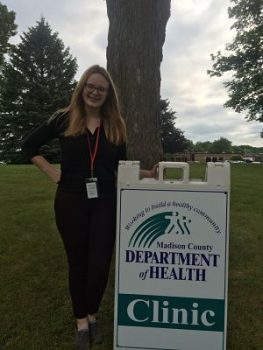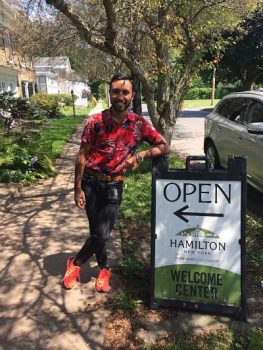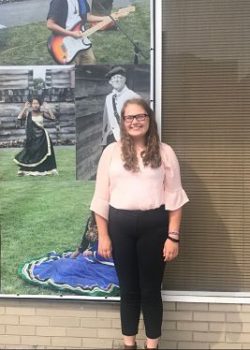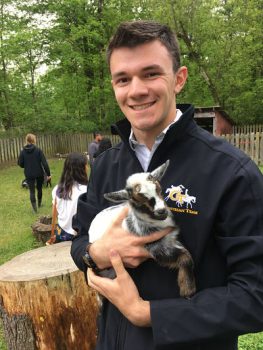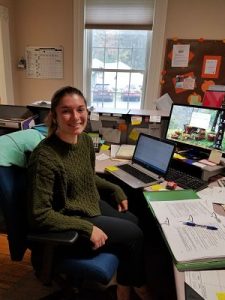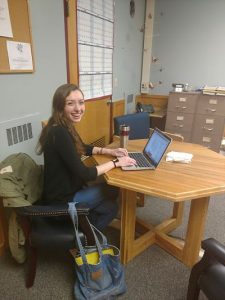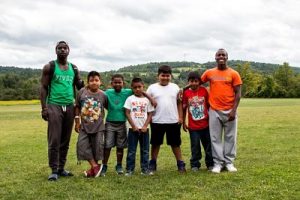Submitted by Elaina Alzaibak, ’20, one of thirty students doing community based research this summer for the Upstate Institute Summer Field School
This summer, I had the opportunity to intern at Cornell Cooperative Extension of Madison County (CCE) through the Colgate Upstate Institute Summer Field School. CCE focuses on economic, environmental, and social development in Madison County using both local experience and research based knowledge to help all people succeed in the future. Founded in 1914 through the Smith Lever Act, cooperative extension offices across the country became a link between the USDA and land grant institutions such as Cornell University in order to aid agricultural communities. Today, the Madison County office, located in Morrisville, still provides agricultural education and economic development programs as well as resources for families such as rural health and 4H programing.
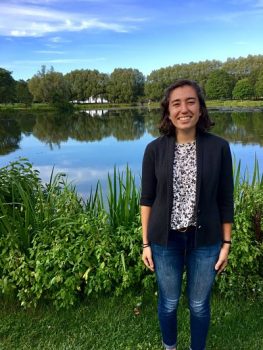
CCE of Madison County serves a diverse community. The resources they provide are critical to connecting community members to important research that may otherwise be inaccessible. Educators must be able to provide resources to the community that are informative, yet easy to use. Educators must also be flexible and adapt to the needs of the community to tackle the many issues facing rural populations, specifically farmers. For the social and economic stability of the county, organizations like CCE are critical to maintaining farmer livelihoods and engaging families.
In my internship, I was responsible for creating a climate adaptation workbook for dairy farmers that is user-friendly and practical. Using a multitude of existing sources for climate smart farming, my goal was to create a document that is short yet contains a wide array of practical strategies for adapting to current and future climate challenges. This makes important information on climate adaptation more accessible to farmers who may not have time for a lengthier document or one that does not provide clear solutions. Additionally, the strategies provided in the workbook are critical steps in protecting farmers’ profitability, production outputs, and livelihoods. Current and future climate conditions pose a serious threat to farmers such as pest and disease pressure, heat stress in livestock, or decreased soil health. CCE’s mission to connect farmers to research and strategies can help overcome these challenges specifically through resources like the workbook. I hope that over the course of the summer I was able to use my own knowledge of climate change to assist farmers in understanding the challenges they face and the threat to their livelihood, as I have learned so much from farmers and educators at CCE about the Madison County community.
At Colgate, I am majoring in biology and am working towards being a large animal veterinarian. I have learned about climate change, and the importance for human systems such as agriculture to adapt to and mitigate climate change. The Summer Field School provided an opportunity to work in a rural community to help bring about change in a meaningful and collaborative way. As a large animal veterinarian, I hope to focus on One Health, or the idea that people, animals, and the environment are interconnected, in order to best inform my practice and help communities. I will be positioned to help farmers not only maintain the medical care of their animals, but also suggest ways in which they can improve their practices for better animal and environmental health. This internship taught me about working collaboratively with community members such as famers and regional educators as well as about effective outreach methods so research can be better utilized in the community. I will carry the heart of the CCE mission beyond my internship as success of our farmers and rural communities in a healthy environment are essential for the future.



